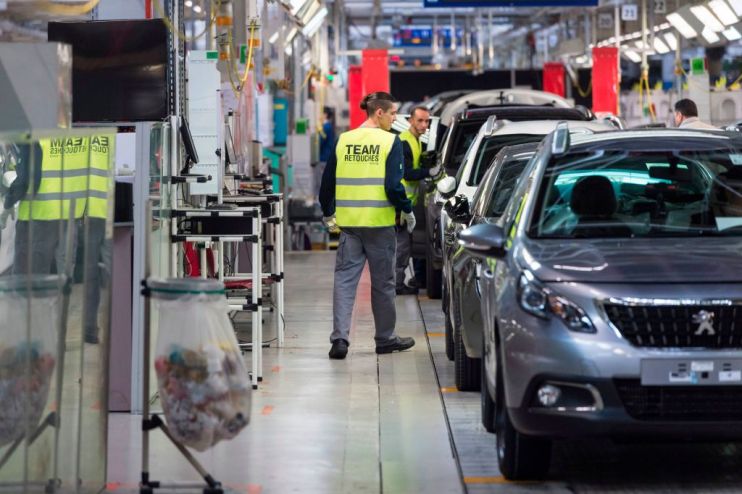Eurozone industrial production beats predictions but Germany still weak

Industrial production the Eurozone grew for the second straight month in September, official figures showed today, beating analysts’ expectations.
Read more: Mario Draghi’s ECB reign ends with Eurozone ‘close to stagnation’
The slump in Germany’s factory sector continued, however, with output falling a chunky one per cent as Europe’s biggest economy slides towards recession.
Industrial production in the 19-member currency bloc grew 0.1 per cent in September month on month, above expectations of a 0.3 per cent fall.
Nonetheless, said Jessica Hinds of Capital Economics, “the sector still fared very poorly in the third quarter overall and the business surveys suggest that the region’s industrial recession has further to run”.
The Eurozone’s industrial sector has been ravaged in 2019 by a slump in global demand – especially in China – and the uncertainty caused by US President Donald Trump’s trade wars.
Expansions in France, the area’s second biggest economy, and the Netherlands helped push the zone’s industrial sector to growth in September, the European Union’s statistics body said.
Falling production of energy, intermediate and consumer durable goods were more than offset by a rise in output of consumer non-durable and capital goods.
Hinds said Eurozone industry was set to receive some good news in the coming days, “with US President Trump expected this week to delay a decision on imposing tariffs on the sector into next year”.
“But the business surveys still paint a gloomy picture. In October, the European Commission’s measure of industrial confidence declined again, to a 75-month low.”
Read more: Donald Trump defends China trade war but says a deal ‘close’
Germany is due to post economic data tomorrow which analysts expect will show the country is officially in recession.
(Image credit: Getty)